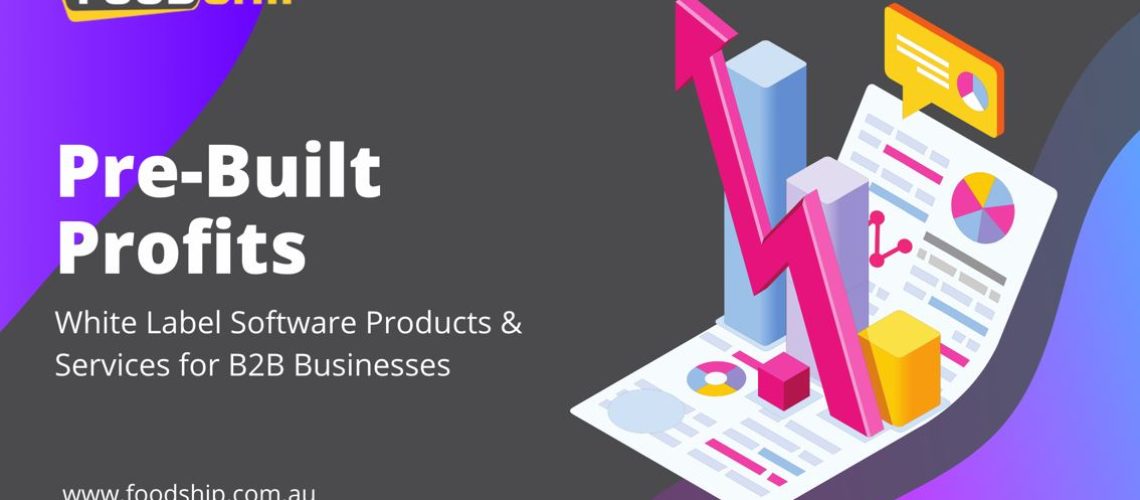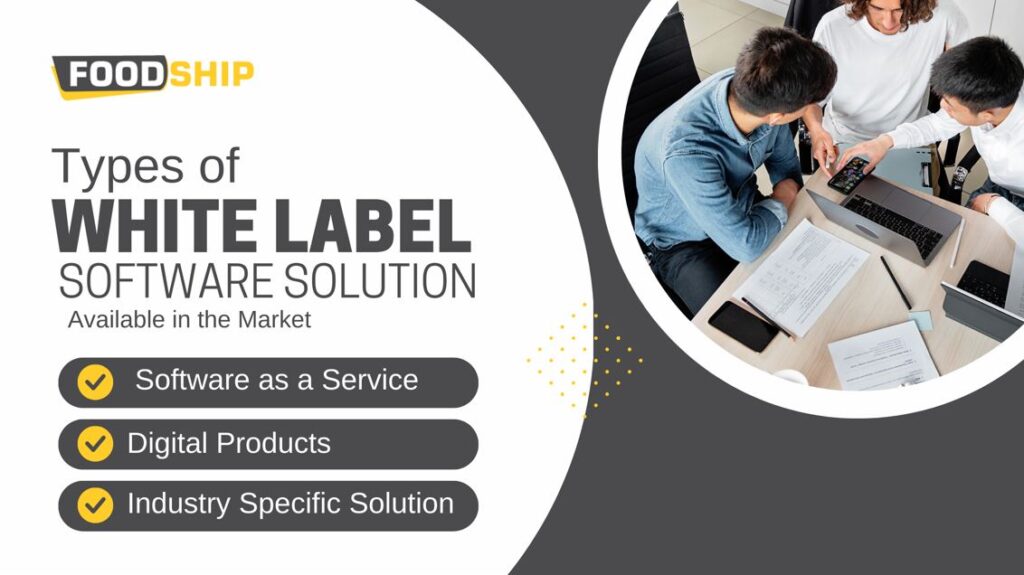Have you ever dreamt of starting your B2B business, offering digital products and IT solutions without the hassle of in-house development? Whether you’re a seasoned B2B leader or just starting out, white label solutions can be a best option to kick start your entrepreneur dreams.
So, what exactly are white label solutions?
Imagine pre-built top software, IT solutions, or best digital products that you can rebrand as your own. As a reseller you get a high-quality product, customize it with your logo and branding, and start selling it to your target market.
1. Why Is The White-Label Approach Gaining Momentum In The B2B World In 2024?
There are several indicators showcase rise in popularity of white label solution globally and in Australia.
- Global Market Boom: The global white-label software market to reach USD 184.2 Billion by 2027, at a CAGR (Compound Annual Growth Rate) of 14.20%.
- Australian Appetite for white-label solution: Zooming into Australian market alone, the white-label software technology market is projected to grow at a good CAGR (Compound Annual Growth Rate) of 8.2% from 2022 to 2027
The answer of this high CAGR lies in the immense benefits white-label business offers. A white-label reseller program is a symbiotic relationship between the service provider and the white-label reseller, offering a win-win situation for both parties:
1.1 White-label Service Providers:
o Increased Market Reach: Leverage the reseller’s network to tap into new market at different geographical location.
o Faster Sales Cycles: Shortened sales cycles through established reseller relationships.
o Lower Marketing Costs: Reduced marketing expenses by utilizing the reseller’s marketing efforts.
1.2 White-label Resellers:
o No need of Technical Expertise: In case reseller needs to add any third-party integration or customer-appealing feature, they don’t need any technical expertise as this will be taken care of by the white-label software service provider.
o Instant Access to Pre-made Training Resources: Reseller get access to the ready made training material, allowing them to be productive from day one.
o Personalised Training: Resellers receive one-on-one training on the product, helping them understand its features and benefits, which simplifies pitching it to prospective customers.
This blog post serves as your comprehensive guide to the exciting world of white label solutions for B2B market. We’ll help you understand different types of white label products available (i.e: software, IT solutions, and digital products), explore how to identify reputable vendors, and equip you with strategies for successfully selling these solutions.
2. What Is The Difference Between White-Label & Private Label?
White label are pre-built software, apps, or IT solutions that reseller can sell under their own branding. Unlike private label products, which are custom-developed for a specific brand with a specific requirement.
A white label solutions offer a cost-effective alternative in comparison to private label plus you get high-quality solutions, customize them with your logo and branding, and start selling them to your target market. Think of it as “renting” a product instead of building it from scratch. Here’s an example: Imagine white label restaurant management software service provider like Foodship. Foodship offer white label products that can be customize with your company’s brand name and logo and offer it to restaurants as your own “branded” solution. No one can ever make out that this is a Foodship product or developed by your own brand.
3. Types Of White Label Software Solution Available In The Market
The white label market is full of possibilities! From core business functions like white label CRM software to industry-specific solutions like white label restaurant management apps, there’s a pre-built software solution waiting to be customized and resold in B2B market. Now, let’s explore the exciting world of white label products & services in more detail:
3.1 White Label Software as a Service (SaaS):
SaaS solutions are cloud-based applications that B2B businesses can access for a monthly subscription fee. Here are some popular white label SaaS categories:
- Customer Relationship Management (CRM): Streamline sales, marketing, and customer service interactions for improved client retention. (Imagine a restaurant management company offering a white-label CRM to help hospitality businesses manage customer relationships more effectively.)
- Marketing Automation: Automate repetitive marketing tasks like email campaigns and social media posting, increasing efficiency and campaign effectiveness.
- Project Management:Project management software keeps businesses on track with achieving their goals. It can be used for assigning tasks, tracking progress, collaborating in real-time, and meeting deadlines with ease. Boost team communication, improve efficiency, and deliver projects on time and within budget.
- Accounting: Simplify financial management tasks like invoicing, expense tracking, and reporting.
- Security: Provide essential security features like data protection, intrusion detection, and access control, a valuable service for businesses in any industry.
- Data Backup & Recovery: Ensures critical business data is safe from accidental deletion or hardware failures.
- Cloud Storage: Provides secure and scalable storage solutions for data and applications.
3.2 White Label Digital Products:
Digital products are digital assets pre-created and branded with your company’s logo. These are becoming increasingly popular in B2B due to the growing demand for readily available, customizable content:
- E-Learning Courses: Offer pre-built training modules on various business topics that you can brand and sell to your target audience. A restaurant management company could offer white-label e-learning courses on food safety or customer service for hospitality businesses. • Stock Photos/Videos: Provide high-quality visuals that businesses can use for marketing materials, presentations, and websites.
3.3 Industry specific white label solution:
Beyond core business tools, white label solutions cater to specific industries, like hospitality industry, here is a glimpse of Foodship white label Restaurant Management Software and digital products available in the market:
- Point of Sale Software (POS): Point-of-Sale (POS) software allows restaurants to streamline order processing, payments, and receipts. This translates to faster service times, fewer errors, and increased sales, ultimately increasing profitability of restaurant.
- Online Food Ordering System (FOS): Online Food Ordering System is an IT solution that empowers customers to browse menus, place orders, and make payments conveniently from their devices while sitting in the comfort of their homes. With FOS, restaurants can enhance the food ordering experience for their customers and increase their revenue by reaching a wider customer base.
- Contactless Ordering System: The Contactless-Ordering System, also known as QR code ordering system, allows customers to place orders directly from their smart-phones without installing any third party app and accessing to the menu card. With this innovative technology, restaurant guest can conveniently browse the digital menus, place their orders, and make payments.
- Kiosk Management System (KMS): Kiosk Management Software in a restaurant refers to specialized software designed to assist customer to place orders and make payment using the touch screen device.
- Kitchen Display System (KDS): A Kitchen Display System (KDS) is a digital solution used to manage flow of orders from the point of sale (POS) system(Front of House) to the kitchen (Back of House). Instead of traditional paper tickets, orders are sent electronically to display on screens, where they are organized and prioritized based on factors like order time and type of food. KDS helps reduce errors, improve communication, and enhance overall kitchen efficiency in restaurants.
4. Finding The Best Match: Top Tips For Choosing White Label Partners
Choosing the right white label software provider is really important to build a strong foundation for your white-label b2b business. Here’s how to find reliable vendors:
- Industry Research: Identify established white label providers within your chosen niche. For example, if you focus on the restaurant business, research white label providers specializing in hospitality technology solutions like online ordering systems or point of sale software.
- Online Reviews and Comparisons: Check online reviews and compare features, pricing, and support options. Don’t just rely on one source – gather a well-rounded perspective. Look for white-label service providers with a positive client testimonials and proven track record.
- Industry Events and Conferences: Attend industry events to network with top white label partners. These events offer good opportunities to connect with vendors and assess their products firsthand.
- Beyond the Product: Don’t just focus on the software or app itself. Evaluate factors like pricing structure, scalability, and most importantly, the quality and availability of ongoing customer support.
5. Successfully Selling White Label Products/Services
Now that you’ve found reliable partners, it’s time to turn these white label solutions into profit:
- Understand Your Target Market: Who are you trying to reach? For a restaurant management company, your target market might be independent restaurants or small hospitality chains. Research your target audience’s specific needs and tailor your white label offerings accordingly.
- Customize the Offering: Don’t just slap your logo on it and call it a day! Highlight features and functionalities relevant to your target market. For instance, a restaurant management company offering white-label point of sale software could emphasize features that help restaurants target local customers or list special offers.
- Build a Sales Funnel: Develop a marketing strategy to attract potential B2B clients. Create content showcasing the benefits of white label solutions for their specific industry (e.g., “How White-Label Online Ordering Can Boost Your Restaurant’s Revenue“). List a well-defined sales funnel to convert leads into paying customers
- Give a Free Demo: Resellers must showcase their white label software product to prospective customers with free demos! Every customer is unique and have specific requirement, a customize demos help you to list yourself on top (e.g., restaurant management software demo for hospitality business) and highlight features that address their pain points. These demos help you to convert prospects into customers by letting them experience the value first hand.
6. Conclusion
White label solutions are not just about reselling pre-built products; they’re about unlocking B2B growth potential. By partnering with reliable vendors, understanding your target market, and creatively selling these solutions, you can unlock a new path to success. This scalable model empowers B2B businesses to expand their reach, boost profits, and ultimately, thrive in the ever-evolving marketplace.
Ready to explore the possibilities?
Start your white label journey today and watch your B2B business soar!




